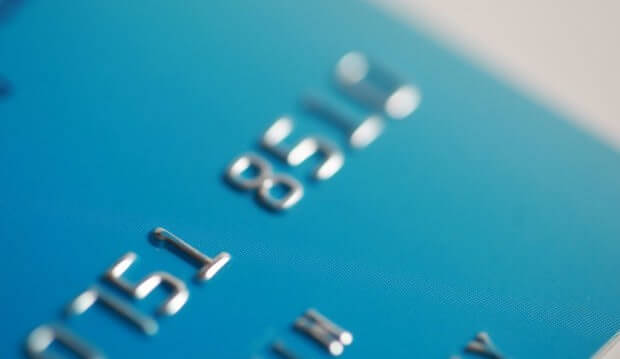Here's a new statistic that should strike fear into your family. Here's what you can do about it.
Do you live in a “typical American household”? I pray you don’t.
The financial research website Nerdwallet recently released its 2016 American Household Credit Card Debt Study. This annual report is lengthy and detailed, with charts that have titles like, Credit card interest by employment status.
One statistic, however, stopped me cold…
“The average household with a credit balance owes $16,061 on its cards alone.”
Overall, the average household owes just over $132,000, but that includes mortgages and auto loans and student loans and every other kind of debt you can imagine. Yet none of those numbers disturb me as much as those credit card balances.
The scary downside of credit cards
For starters, few kinds of debt charge higher interest rates. The national average right now is just over 15 percent. Compare that to just over 4.3 percent for 60-month car loan.
As Nerdwallet concluded in its report, “Credit card debt is one of the most expensive types of debt.” Indeed, if you carry the average balance all year long, you’ll pay a stunning $1,292 in interest charges.
Even worse, that figure might increase. As Nerdwallet points out, “This could increase to $1,309 if the Federal Reserve hikes rates a quarter of a percentage point.”
Since the Great Recession, we’ve been stuck at historically low interest rates. If the economy comes roaring back, those rates will skyrocket. That’s good news for savers whose CDs are languishing, but it’s terrible news for debtors who owe big on their credit cards.
Overall, Americans owe $747 billion on their plastic. Yes, we owe more in other areas…
- Mortgages: $8.35 trillion
- Student loans: $1.28 trillion
- Auto loans: $1.14 trillion
However, I’ve long maintained the most dangerous debt is the kind you can acquire the easiest — and no form of debt is easier than getting a credit card. Want a mortgage? Enjoy the paperwork.
The practical solution to credit card debt
Sometimes the best solutions are the most boring. I once wrote that debt and dentists have a lot in common. One of the many reasons is this: If you want to save your teeth, you know you need to brush and floss, and neither are very much fun.
If you want to save your money, you know you need to budget and spend wisely. Those aren’t much fun, either.
That’s why I’m a loud advocate for credit counseling. If you have $16,000 in credit card debt, chances are you won’t be able to pay off those balances all by yourself. You’ll need professional help. I know this sounds like a sales pitch, but it’s not. Sure, Debt.com can hook you up with a certified credit counselor, but I don’t care if you go through us or not. Just get it done.
Here’s what you need to know: All credit counseling agencies are nonprofits. If they don’t offer you a free consultation, hang up the phone. If they offer you other services for a price and want you to pay up front, hang up.
In fact, before you call any of them, type the agency’s name into the Better Business Bureau website. If you don’t see an A-plus rating, don’t bother. Finally, check to see how long the agency has been around, and what kind of online reviews there are from (dis)satisfied customers. The longer the agency has been in business, the more reviews there will probably be.
When you make the call, you’ll get a detailed financial analysis and concrete options to pursue. Some may cost you a fee, but that should pale compared to the savings you rack up. If they don’t? Hang up.
Follow this advice, and by this time next year, you’ll be anything but “typical.”








